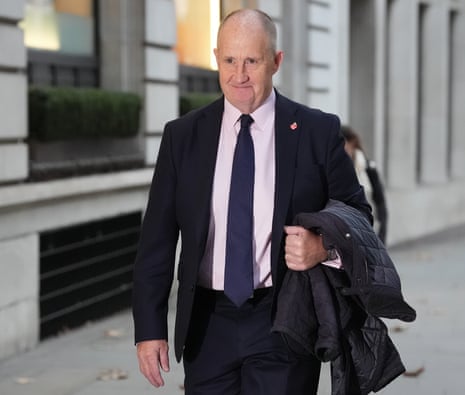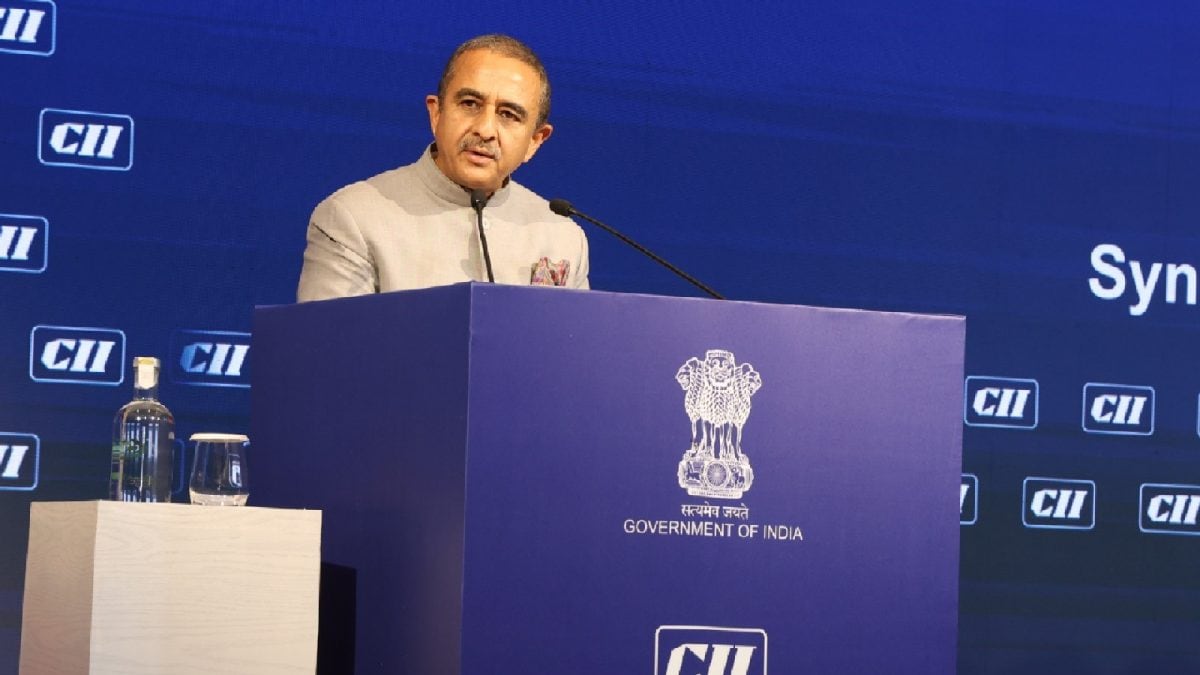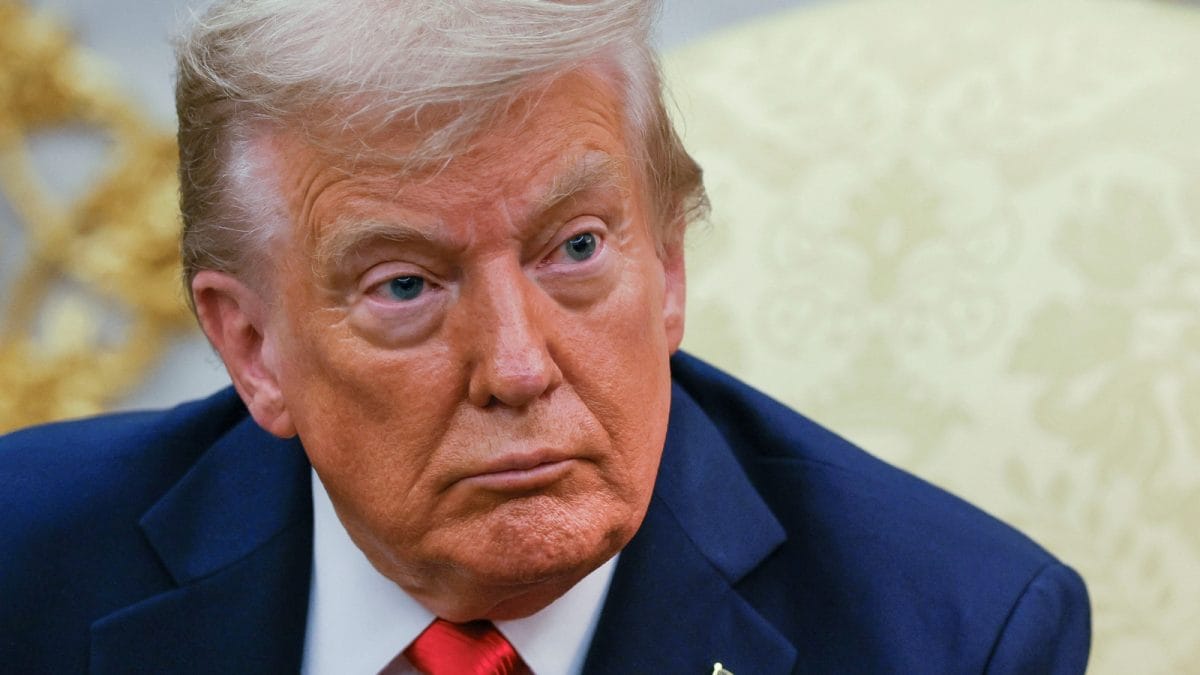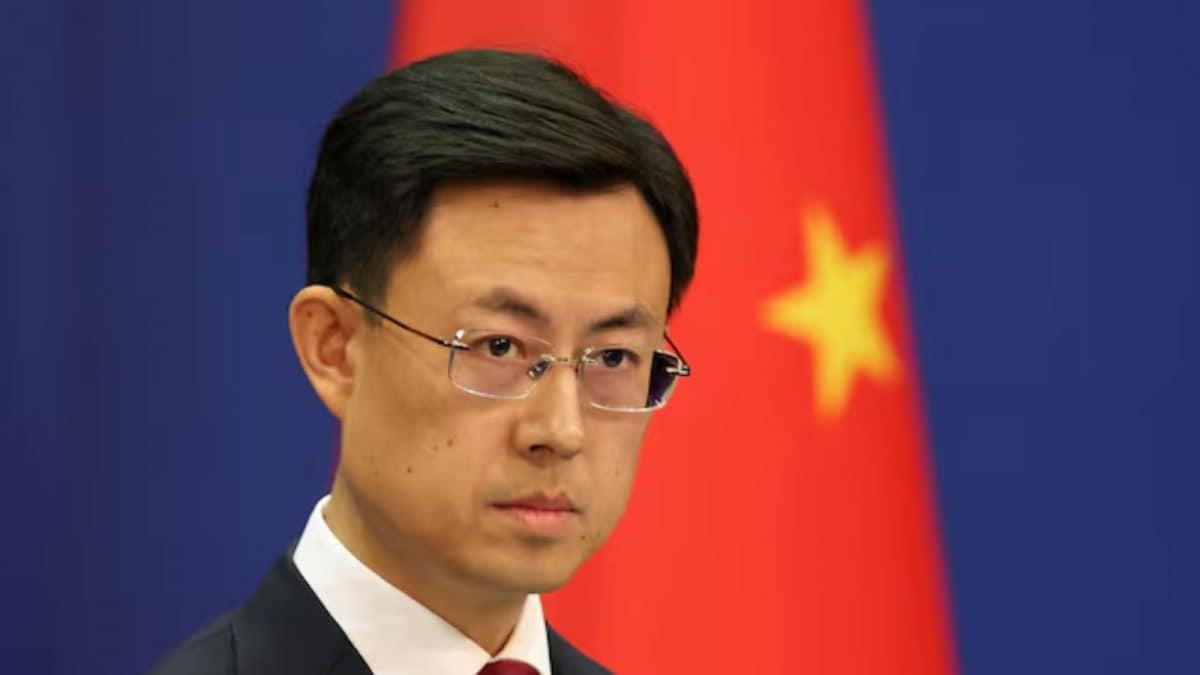Conservatives could 'potentially' strike a deal with Taliban-run Afghanistan to return migrants, says party chair
The Conservatives could “potentially” strike a deal with Afghanistan over migration, the party’s chair has said.
Asked directly if the Tories would set up a returns agreement with the Taliban-run country, Kevin Hollinrake told Times Radio: “Well, potentially, yes.”
The former minister added that his party’s deportation plan, which was published in May, is “far more comprehensive than the one we’ve seen from Reform, in that it dealt with both legal migration and illegal migration”.

Conservative leader Kemi Badenoch had refused to say whether she would consider seeking such an agreement when pressed on the issue on Tuesday.
Meanwhile, Nigel Farage has been accused of “ugly” and “destructive” rhetoric after announcing plans to deport hundreds of thousands of asylum seekers and pledging to pay despotic regimes such as the Taliban to take them back.
Unveiling Reform UK’s “Operation Restoring Justice” at a combative press conference in Oxford, Farage said he would rip up the UK’s postwar human rights commitments, contained in a range of international conventions, to deport “absolutely anyone” – including women and children – arriving by small boat.
Elsewhere, the Government has said it wants to get a permanent deal with the EU on food and drink agreed in the next 18 months, as it sets out its stall ahead of talks later this year. Cabinet Office minister Nick Thomas-Symonds and Conservative party chair Kevin Hollinrake are on today’s morning media round. I’ll bring you any interesting lines from them as they come in.
But first, here are some other developments:
UK companies spent up to £65m last year on licences to export food and agricultural products to the EU – costs that the government is promising to eliminate as part of a new deal to be agreed by 2027. Government figures released on Tuesday showed it issued 328,727 such licences last year, at a cost of between £113 and £200 each. That would put the total cost to business at somewhere between £37m and £65m.
The cost of UK government borrowing has jumped to near a 27-year high, piling pressure on Rachel Reeves to reveal how she will tackle the deficit in the public finances before the autumn budget. The yield, or interest rate, on the UK’s 30-year bond rose by eight basis points (0.08 of a percentage point) on Tuesday to 5.62%.
Ministers have approved plans to help a further 30 students leave Gaza to take up places at UK universities next month but their evacuation remains uncertain and dependent on Israel’s approval. It takes the total to 39, after a government commitment last week to work to secure the evacuation from Gaza of nine Chevening scholars with places at some of the UK’s leading universities.
Energy costs will rise for millions of British households this autumn after the price cap for a typical annual dual-fuel bill increased by 2% to £1,755. The energy regulator for Great Britain, Ofgem, will raise the cap on gas and electricity charges from October by the equivalent of just over £35 a year for the average home, following a rise in European gas prices.
Key events Show key events only Please turn on JavaScript to use this feature
Speaking about the news of a 2% rise in energy bills from October for a typical household in England, Scotland and Wales, director general of markets at Ofgem, Tim Jarvis, told BBC Radio 4’s Today programme on Wednesday:
That’s slightly lower than the rate of inflation, but is nevertheless a rise, and I recognise that that’s going to be unwelcome for many households.
If this is a cap on what suppliers can charge, it’s important to remember that people can get cheaper deals in the fixed rate market, and we’ve already got about a third of households that are on fixed rate deals – but there have been increases in prices, in costs related to the network and related to policy costs from government, which have led to this slight increase this quarter.
Jarvis added:
I recognise that it’s difficult for households, as a lot of essential goods have been going up higher than the rate of inflation. As I say, today’s rise is lower than the rate of inflation, but I think people are going to struggle to feel that in their pockets with the other things that are going on.
It is welcome that the government is expanding the help available to households on low incomes. We’ve been calling for that for some time, so that’s a welcome additional increase this winter to try and help people with their bills.
Jarvis also said that Ofgemwill be looking at upgrading the country’s network to stabilise prices in the long term. He told BBC Radio 4’s Today programme:
We have seen prices come down by around 60% since the height of the crisis, and that’s even taking into account the level of government support that was made available at that time to deal with the increase in prices. But we are entering a period where we’re looking to try and stabilise the bill that is largely going to be about getting off international gas prices.
It is that volatility that is making prices very difficult to predict, and we’re seeing big spikes and big reductions over time. And that’s why it’s so important that we’re investing in the network, and the investment in the network will enable us to get access to clean energy and cheaper energy in the longer term.
Labour’s plan for change will protect consumers, the party said, following Ofgem’s announcement that the energy price cap will rise by 2% from October.
According to the PA news agency, a Labour Party spokesperson said:
Energy bills soared under the Conservatives because they tied our country to the fossil fuel rollercoaster and working people are still paying the price.
From banning onshore wind to failing to deliver new nuclear, their reckless decisions left Britain exposed to wholesale gas prices that are still 75% higher than before Putin’s invasion of Ukraine.
That’s why Nigel Farage’s unpatriotic war on clean energy would be a total disaster for families, businesses and our economy. His destructive plans would push bills higher, kill nearly a million jobs and scrap billions of pounds of vital investment across the country that will strengthen our energy security.
This Labour government’s plan for change is protecting consumers with three million more families getting £150 off their bills through the warm home discount, a total of six million in all, as we continue to invest in clean homegrown power to bring energy bills down for good.
Typical annual energy bill to rise to £1,755 in Great Britain from October
Jillian Ambrose
Energy costs will rise for millions of British households this autumn after the price cap for a typical annual dual-fuel bill increased by 2% to £1,755.
The energy regulator for Great Britain, Ofgem, will raise the cap on gas and electricity charges from October by the equivalent of just over £35 a year for the average home, following a rise in European gas prices.
The modest increase follows a brief reprieve from rising energy bills over the summer when the energy price cap fell by 7% to £1,720 from July because of lower market prices.
Energy bills will also increase because of an expansion of the government’s warm home discount scheme, which is expected to add about £15 to a typical bill, according to analysts at Cornwall Insight, an energy consultancy.
About 9 million households who buy their energy through variable tariffs will see an immediate impact on their bills when the cap takes effect in October. Households could face even higher bills if they use more than the typical amount of energy.
This is because the cap, which is recalculated every three months, limits the rate energy suppliers can charge customers for each unit of gas and electricity – not the total bill.
The return to rising energy bills means the typical household will pay about £600 a year more on its annual bill than before Russia’s invasion of Ukraine in 2022 caused gas market prices to soar.
The rising price cap is likely to reignite the debate over the affordability of the UK’s energy as households look ahead to winter.
UK has had reassurance from France that small boat interceptions deal 'will go ahead', says Cabinet Office minister
The UK has had reassurance from France that the deal between the two countries to allow small boat interceptions in the English Channel “will go ahead”, Cabinet Office minister Nick Thomas-Symonds said, reports the PA news agency.
He told Times Radio:
The Home Office have already set out that they’ve had reassurance from the French interior ministry that this change in maritime law will go ahead.
Thomas-Symonds added:
We’ve had that reassurance it will go ahead. And it is important, because what that particular change is talking about is the ability for French police to intercept the boats within 300 metres of the shore in shallow water. That was not the case before.
Farage attacked for ‘ugly’ rhetoric of plan for mass deportation of asylum seekers

Haroon Siddique
Nigel Farage has been accused of “ugly” and “destructive” rhetoric after announcing plans to deport hundreds of thousands of asylum seekers and pledging to pay despotic regimes such as the Taliban to take them back.
Unveiling Reform UK’s “Operation Restoring Justice” at a combative press conference in Oxford, Farage said he would rip up the UK’s postwar human rights commitments, contained in a range of international conventions, to deport “absolutely anyone” – including women and children – arriving by small boat.
Calling asylum seekers a threat to national security and to British women, he claimed his plans would stop Channel crossings “within days” and “save tens and possibly hundreds of billions of pounds”.
Downing Street accused Farage of not being serious about his plans, but in a sign of how Reform has set the tone for public debate, the prime minister’s spokesperson refused to criticise his references to irregular migration as an “invasion” and a “scourge” or his prediction that Britain is “not far away from major civil disorder”.
Pushed on whether it would be a good idea to sign a returns deal with Taliban-controlled Afghanistan, as Farage proposed, the spokesperson said the government was “not going to take anything off the table”.
The Conservatives merely accused Reform UK of “reheating and recycling” Tory plans.
The Liberal Democrat leader, Ed Davey, said:
We really are through the looking-glass now. Nigel Farage pretending to be patriotic while pledging to rip up Britain’s proud record of leading the world on human rights.
As we’ve seen across history, his populist playbook is ugly, powerful and incredibly destructive. We know where it will lead if we don’t stop it.
Laura Smith, a co-head of legal at the Joint Council for the Welfare of Immigrants (JCWI), said:
If today feels like a Rubicon moment, it’s because it is. We are hearing proposals that would tear through centuries of British legal tradition – from the Magna Carta to the Human Rights Act – with barely any resistance from those who should be defending those values.
The ban on torture is absolute and fundamental; it cannot be bargained away. That mainstream parties have failed to push back is deeply alarming. This isn’t about migration policy any more, it’s about whether we still value the basic human rights and freedoms that define a democratic society. Now more than ever, we must fight against the normalisation of this rhetoric.
Conservatives could 'potentially' strike a deal with Taliban-run Afghanistan to return migrants, says party chair
The Conservatives could “potentially” strike a deal with Afghanistan over migration, the party’s chair has said.
Asked directly if the Tories would set up a returns agreement with the Taliban-run country, Kevin Hollinrake told Times Radio: “Well, potentially, yes.”
The former minister added that his party’s deportation plan, which was published in May, is “far more comprehensive than the one we’ve seen from Reform, in that it dealt with both legal migration and illegal migration”.

Conservative leader Kemi Badenoch had refused to say whether she would consider seeking such an agreement when pressed on the issue on Tuesday.
Meanwhile, Nigel Farage has been accused of “ugly” and “destructive” rhetoric after announcing plans to deport hundreds of thousands of asylum seekers and pledging to pay despotic regimes such as the Taliban to take them back.
Unveiling Reform UK’s “Operation Restoring Justice” at a combative press conference in Oxford, Farage said he would rip up the UK’s postwar human rights commitments, contained in a range of international conventions, to deport “absolutely anyone” – including women and children – arriving by small boat.
Elsewhere, the Government has said it wants to get a permanent deal with the EU on food and drink agreed in the next 18 months, as it sets out its stall ahead of talks later this year. Cabinet Office minister Nick Thomas-Symonds and Conservative party chair Kevin Hollinrake are on today’s morning media round. I’ll bring you any interesting lines from them as they come in.
But first, here are some other developments:
UK companies spent up to £65m last year on licences to export food and agricultural products to the EU – costs that the government is promising to eliminate as part of a new deal to be agreed by 2027. Government figures released on Tuesday showed it issued 328,727 such licences last year, at a cost of between £113 and £200 each. That would put the total cost to business at somewhere between £37m and £65m.
The cost of UK government borrowing has jumped to near a 27-year high, piling pressure on Rachel Reeves to reveal how she will tackle the deficit in the public finances before the autumn budget. The yield, or interest rate, on the UK’s 30-year bond rose by eight basis points (0.08 of a percentage point) on Tuesday to 5.62%.
Ministers have approved plans to help a further 30 students leave Gaza to take up places at UK universities next month but their evacuation remains uncertain and dependent on Israel’s approval. It takes the total to 39, after a government commitment last week to work to secure the evacuation from Gaza of nine Chevening scholars with places at some of the UK’s leading universities.
Energy costs will rise for millions of British households this autumn after the price cap for a typical annual dual-fuel bill increased by 2% to £1,755. The energy regulator for Great Britain, Ofgem, will raise the cap on gas and electricity charges from October by the equivalent of just over £35 a year for the average home, following a rise in European gas prices.

 4 hours ago
4 hours ago















